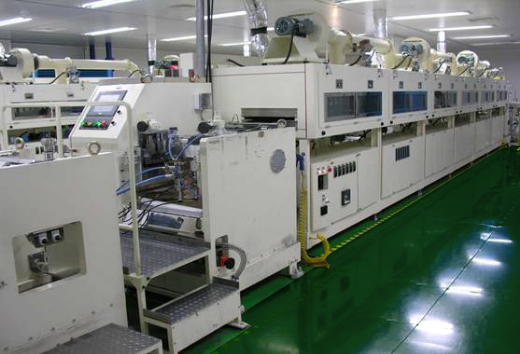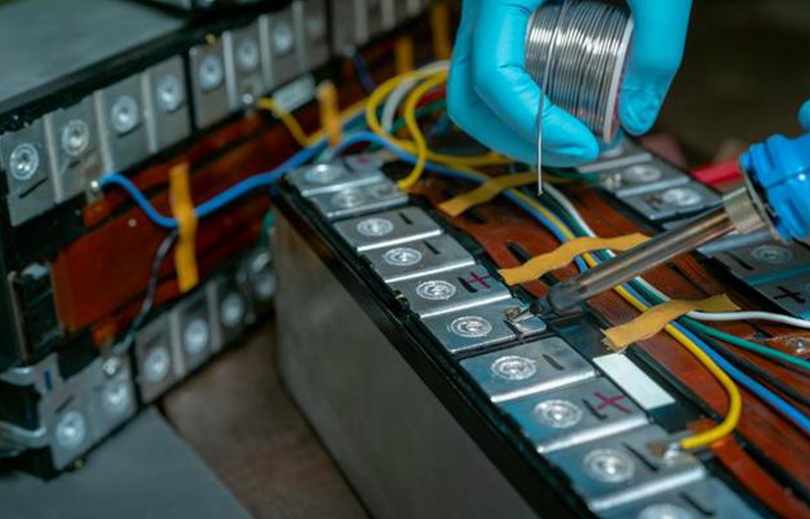Améliorer l'efficacité des communications grâce aux stations de base alimentées par batterie au lithium
In the era of increasing connectivity and communication demands, efficient and reliable base stations play a crucial role in ensuring seamless communication networks. Traditional base stations, which rely on conventional grid power sources, often face challenges such as high operational costs, limited mobility, and environmental concerns. To address these issues and enhance communication efficiency, the implementation of lithium battery-powered base stations has gained significant attention. This article explores the advantages of lithium battery-powered base stations and their potential impact on communication networks.
Advantages of Lithium Battery-powered Base Stations:
Cost-effectiveness: Lithium batteries offer a cost-effective solution for powering base stations. Traditional base stations require complex electrical infrastructure and ongoing maintenance expenses. In contrast, lithium batteries provide a simpler and more economical alternative by eliminating the need for extensive wiring and grid connection costs.
Mobility and flexibility: Lithium battery-powered base stations are highly portable, allowing for rapid deployment in remote or disaster-stricken areas. These stations can be easily transported and set up without reliance on fixed infrastructure, making them an ideal choice for emergency situations or temporary communication requirements.
Energy efficiency: Lithium batteries have a high energy density, providing a longer operational period between recharges. This energy efficiency reduces the need for frequent replacements and ensures uninterrupted communication services. Additionally, advanced battery management systems can optimize power usage, further enhancing energy efficiency and extending the battery life.
Environmental friendliness: By reducing reliance on grid power sources, lithium battery-powered base stations contribute to a greener and more sustainable communication infrastructure. Lithium batteries offer a clean energy solution, reducing carbon emissions and minimizing the ecological impact of traditional power generation methods.
Impact on Communication Networks:
Extended coverage: Lithium battery-powered base stations can be strategically placed in areas with limited or no access to electricity grids, thereby extending communication coverage to underserved regions. This expansion of network coverage enhances connectivity, improves access to information, and fosters economic development in previously isolated communities.
Reliable backup power: In situations where grid power is disrupted due to natural disasters or infrastructure failures, lithium battery-powered base stations act as reliable backup power sources. This ensures uninterrupted communication services during critical times, facilitating emergency response efforts and enabling affected populations to stay connected with their loved ones.
Enhanced network resilience: The mobility and flexibility of lithium battery-powered base stations improve network resilience and redundancy. In the event of network congestion or equipment failure, these stations can be quickly deployed to compensate for the loss of connectivity, ensuring uninterrupted service and minimizing downtime.
Reduced operational costs: The cost-effective nature of lithium battery-powered base stations results in reduced operational expenses for communication service providers. By eliminating the need for extensive grid infrastructure and reducing maintenance costs, service providers can allocate resources to further network expansion and technological advancements.

Conclusion:
Lithium battery-powered base stations offer numerous advantages over traditional grid-powered stations, including cost-effectiveness, mobility, energy efficiency, and environmental friendliness. The implementation of such stations has the potential to enhance communication efficiency, extend network coverage to underserved areas, ensure reliable backup power, and improve network resilience. As the demand for seamless connectivity continues to rise, investing in lithium battery-powered base stations becomes a viable solution for communication service providers to meet consumer expectations and contribute to a sustainable future.
-
 With the increasing demand for energy storage solutions, lithium iron phosphate (LiFePO4) batteries have emerged as a popular choice due to their high energy density, long cycle life, and inherent safety features. However, with various manufacturers and suppliers offering LiFePO4 batteries with different specifications and performance metrics, it can be challenging to compare and choose the right battery for a...En savoir plus
With the increasing demand for energy storage solutions, lithium iron phosphate (LiFePO4) batteries have emerged as a popular choice due to their high energy density, long cycle life, and inherent safety features. However, with various manufacturers and suppliers offering LiFePO4 batteries with different specifications and performance metrics, it can be challenging to compare and choose the right battery for a...En savoir plus -
 In the world of batteries, there are many different types and technologies available. One of the most popular and promising technologies is the lithium iron phosphate (LiFePO4) battery. This type of battery has become increasingly popular in recent years, due to its high capacity, long lifespan, and excellent safety profile. In this article, we will take a closer look at...En savoir plus
In the world of batteries, there are many different types and technologies available. One of the most popular and promising technologies is the lithium iron phosphate (LiFePO4) battery. This type of battery has become increasingly popular in recent years, due to its high capacity, long lifespan, and excellent safety profile. In this article, we will take a closer look at...En savoir plus -
 When it comes to enjoying a day out on the water, having a reliable boat is crucial. One key component that ensures a smooth start-up is the cranking battery. This essential part provides the necessary power to start the boat's engine and get you sailing in no time. In this article, we will explore the importance of a cranking battery...En savoir plus
When it comes to enjoying a day out on the water, having a reliable boat is crucial. One key component that ensures a smooth start-up is the cranking battery. This essential part provides the necessary power to start the boat's engine and get you sailing in no time. In this article, we will explore the importance of a cranking battery...En savoir plus -
 The 12V LiFePO4 battery is a high-performance power solution that is designed to meet the power needs of various devices and appliances. It is known for its durability, efficiency, and reliability, making it a popular choice for many applications. One of the main advantages of the 12V LiFePO4 battery is its long lifespan. It can last up to 10...En savoir plus
The 12V LiFePO4 battery is a high-performance power solution that is designed to meet the power needs of various devices and appliances. It is known for its durability, efficiency, and reliability, making it a popular choice for many applications. One of the main advantages of the 12V LiFePO4 battery is its long lifespan. It can last up to 10...En savoir plus -
 Lithium batteries have revolutionized the way we power our devices, from smartphones to electric vehicles. Among the various types of lithium batteries available, the lithium iron phosphate (LiFePO4) battery stands out for its enhanced longevity and superior performance. In this article, we will delve into the capabilities and advantages of a 100Ah LiFePO4 lithium battery. LiFePO4 batteries are known...En savoir plus
Lithium batteries have revolutionized the way we power our devices, from smartphones to electric vehicles. Among the various types of lithium batteries available, the lithium iron phosphate (LiFePO4) battery stands out for its enhanced longevity and superior performance. In this article, we will delve into the capabilities and advantages of a 100Ah LiFePO4 lithium battery. LiFePO4 batteries are known...En savoir plus -
 Wireless keyboards have become an essential accessory for many individuals, providing a convenient and clutter-free typing experience. One key factor that determines their performance and longevity is the type of battery they use. In recent years, wireless keyboards have increasingly embraced the power of lithium batteries, enabling enhanced performance and longer battery life. The transition from traditional alkaline batteries...En savoir plus
Wireless keyboards have become an essential accessory for many individuals, providing a convenient and clutter-free typing experience. One key factor that determines their performance and longevity is the type of battery they use. In recent years, wireless keyboards have increasingly embraced the power of lithium batteries, enabling enhanced performance and longer battery life. The transition from traditional alkaline batteries...En savoir plus -
 When it comes to batteries, there are two main types that are commonly used in various applications – deep cycle batteries and starting batteries. While they may appear similar, these batteries have different designs and are designed to serve different purposes. Understanding the differences between the two is crucial for making the right choice for your specific needs. In...En savoir plus
When it comes to batteries, there are two main types that are commonly used in various applications – deep cycle batteries and starting batteries. While they may appear similar, these batteries have different designs and are designed to serve different purposes. Understanding the differences between the two is crucial for making the right choice for your specific needs. In...En savoir plus


